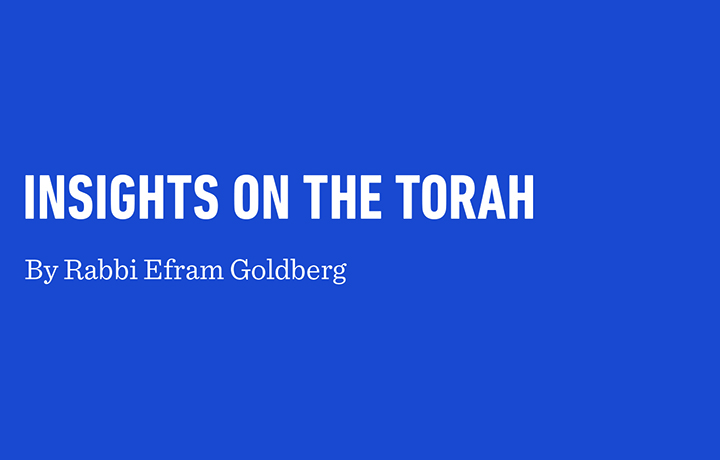Belief In Moshiach Today
By Yochanan Gordon
The Rambam codified belief in Moshiach and anticipating his arrival as a crucial tenet of Torah and Judaism. In fact, the Brisker Rav writes that the words “bechol yom sheyavo”—“every day that he may come”—constitute a commandment to yearn for and anticipate the arrival of Moshiach every second of every day.
There are stories of gedolei Yisrael from previous generations who lived with a palpable sense of Moshiach’s imminent arrival—such as the Chofetz Chaim, who was said to have kept a suitcase packed, ready to run to Eretz Yisrael the moment his arrival was announced. Or Reb Mendel Vitebsker, who once heard someone running through the street excitedly announcing Moshiach’s arrival, which stirred him with great excitement—until he discovered, unfortunately, that it was not the case.
We don’t necessarily hear these types of stories in our day and age. That prompted me to delve into this virtue of anticipation and to reconsider it through a modern lens—to show that our sense of yearning may be just as acute, even if we don’t have a suitcase packed under the bed.
The idea to write this came from a short video someone sent me, titled “Rabbi Chaim Volozhiner Greets Moshiach”—a clip of Reb Yoshe Ber Soloveitchik, the late rosh yeshiva of RIETS, relating a parable about what the coming of Moshiach might look like.
Someone had once asked Reb Chaim of Volozhin what the coming of Moshiach would look like. He responded:
“Imagine a regular Monday morning. I return home from Shacharis and my rebbetzin calls out:
‘Chaim, would you like to eat breakfast?’
‘Relke,’ I reply, ‘I haven’t finished preparing my shiur for today, and I’d prefer not to eat before delving into the sugya.’
‘Okay, Chaim’l,’ she says. ‘I’ll leave the soup on the fire—but please be mindful that it doesn’t burn. I know you, Chaim. I’m going shopping in the marketplace.’
Suddenly, the sun begins shining with a unique intensity, and the birds start singing a beautiful melody. I stick my head out the window and see Yankel the shoemaker running excitedly through the street. I call out, ‘Yankel, what’s going on?’
‘Didn’t you hear?’ he replies. ‘Moshiach has arrived!’
Immediately, I rise from the table and run to find my Shabbosdike kapota—after all, it’s only appropriate to greet Moshiach in Shabbos clothing. I pull out my kapota only to find that a button is missing. It had come off this past Shabbos. I had asked my rebbetzin on motzaei Shabbos to sew it back on, but she looked at me incredulously and said, ‘There’s plenty of time before next Shabbos—I’ll get to it then.’
So now I’m faced with a dilemma: do I go out to greet Moshiach in my Shabbos kapota with a missing button, or in my weekday kapota, which is whole?
As I stand there deciding what to do, my rebbetzin comes home and sees the soup boiling over on the stove. She screams, ‘Chaim!!!’
‘Naar!’ I reply, ‘Haven’t you heard? Moshiach has arrived! Go put on your Shabbos clothes—we’re going to greet him together.’
Reb Chaim concluded: We anticipate Moshiach’s arrival every day—and when he finally comes, he arrives so suddenly that we’ll have to choose between greeting him in an imperfect Shabbos outfit or a complete weekday one.”
I was enamored by this story. Even more compelling was how masterfully it was presented by the Rav, with his inimitable oratory skills and immaculate Yiddish. Instinctively, I shared the story with a few people whom I thought would appreciate it. One of them came back with a striking observation.
He mentioned the acute sense of anticipation that many Litvishe gedolim lived with in previous generations, and pointed out how, in our time, that sense seems to have diminished. In fact, he noted, when people today come together to try and hasten Moshiach’s arrival, they are at best discouraged, and at worst scorned and dismissed. He asked what I thought of his reflection.
It would have been easy to agree. After all, we don’t see people living with suitcases packed under their beds. And although the news is filled with extraordinary developments—enough to leave any believing Jew with the sense that something otherworldly is unfolding—we go about our daily routines, and we hear little from our leaders about Moshiach’s imminent arrival.
Still, I bit my tongue. I’ve become accustomed to trying to be melamed zechus—to judge Jews favorably—whenever possible, following the teaching of my rebbe, Rav Yussie Zakutinsky. So in response to my friend’s voice note, all I said was that while his observation might be historically accurate, I’d prefer to avoid passing judgment or issuing any sweeping statement that our generation is less anticipatory than those before it. I concluded that I needed a little more time to figure out how the apparent lack of outward yearning could still be interpreted in a positive light.
This is what I came up with:
Our earlier conception of exile and redemption was that they represented two distinct universes. We were waiting for Moshiach to take us out of exile and into redemption. One of the classic descriptions of exile is that we’ve been banished from our Father’s table. Over time, this even gave rise to the misconception that G-d had divorced us—so much so that the prophet had to ask, “Where is the divorce document that you were given?”
But there’s a more developed conception—one depicted in the Gemara, which states: “In the future, Eretz Yisrael will expand throughout the entire world.” This implies that we are already within the space of geulah, and all that remains is for the veil of exile to be lifted, and the consciousness of redemption to be revealed.
If you’re in a place completely cut off from your Father, then yes—you need to speak constantly about redemption, so you don’t forget about it and to bring it closer within the realm of possibility. But if you’re already in the space of redemption, just waiting for the cover to be pulled back, then perhaps there’s less that needs to be said.
So yes—previous generations may have spoken more about the coming of Moshiach, and perhaps they anticipated it more acutely on a daily basis. But maybe today’s quiet confidence, this internal and intuitive knowledge that we’re already there and just waiting for the curtain to lift, is its own profound form of anticipation.
I had shared this video with the accompanying thought to Rav Yussie and he agreed that it was a very deep story. One detail that he honed in on was the fact that the Rav’s weekday kapota was in better shape than his Shabbosdike one, which is symbolic of the fact that Moshiach could come to a generation like ours, which seems more weekday like in relation to the previous generations which could be likened to Shabbos. Let us say Amen. Yochanan Gordon can be reached at [email protected]. Read more of Yochanan’s articles at 5TJT.com














